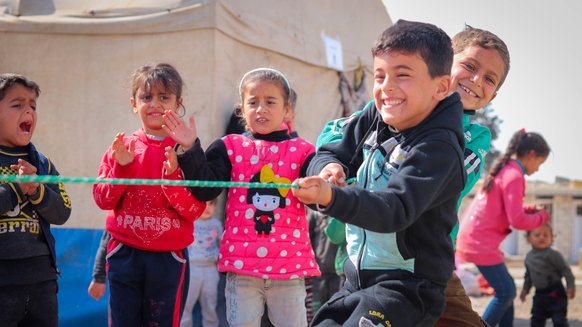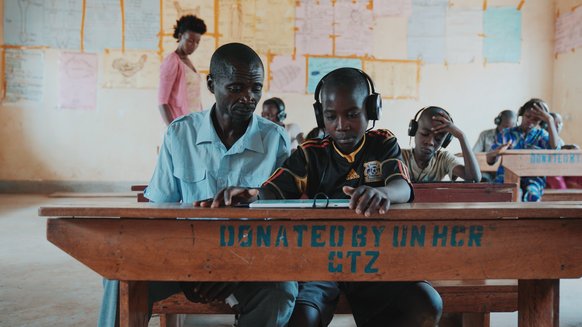Earthquake Response: Preventing the Psychological Aftershocks
Sept. 28, 2023
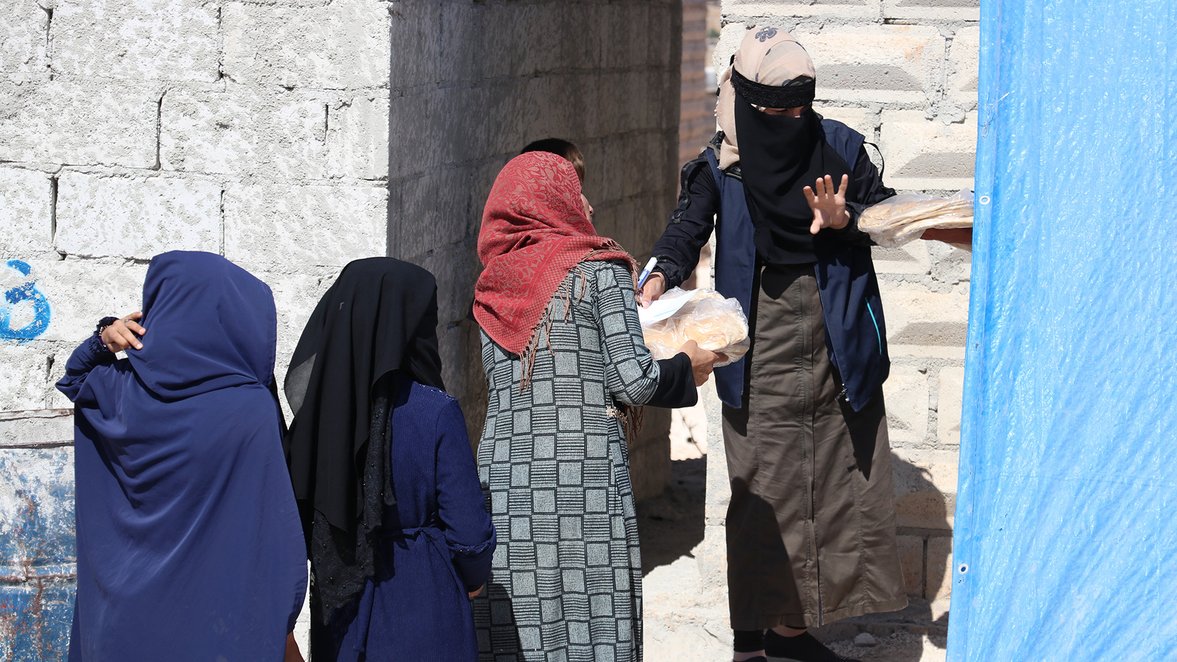
90% of northwest Syria dependent on aid
It’s 4 am in the morning when the first earthquake shakes the foundations of 12-year-old Farah’s home. In a blind panic, she follows her family outside - and just in time because seconds later the building is literally split down the middle. Today, she calls home a tent in a field with no running water or electricity.
Farah is one of thousands of children living with the effects of February's earthquakes. In northwest Syria, more than 4,500 people were killed, tens of thousands injured and 109,000 displaced and scrambling to find shelter. More than half a year later, 90 per cent of the region's inhabitants are dependent on humanitarian aid to keep their heads above water.
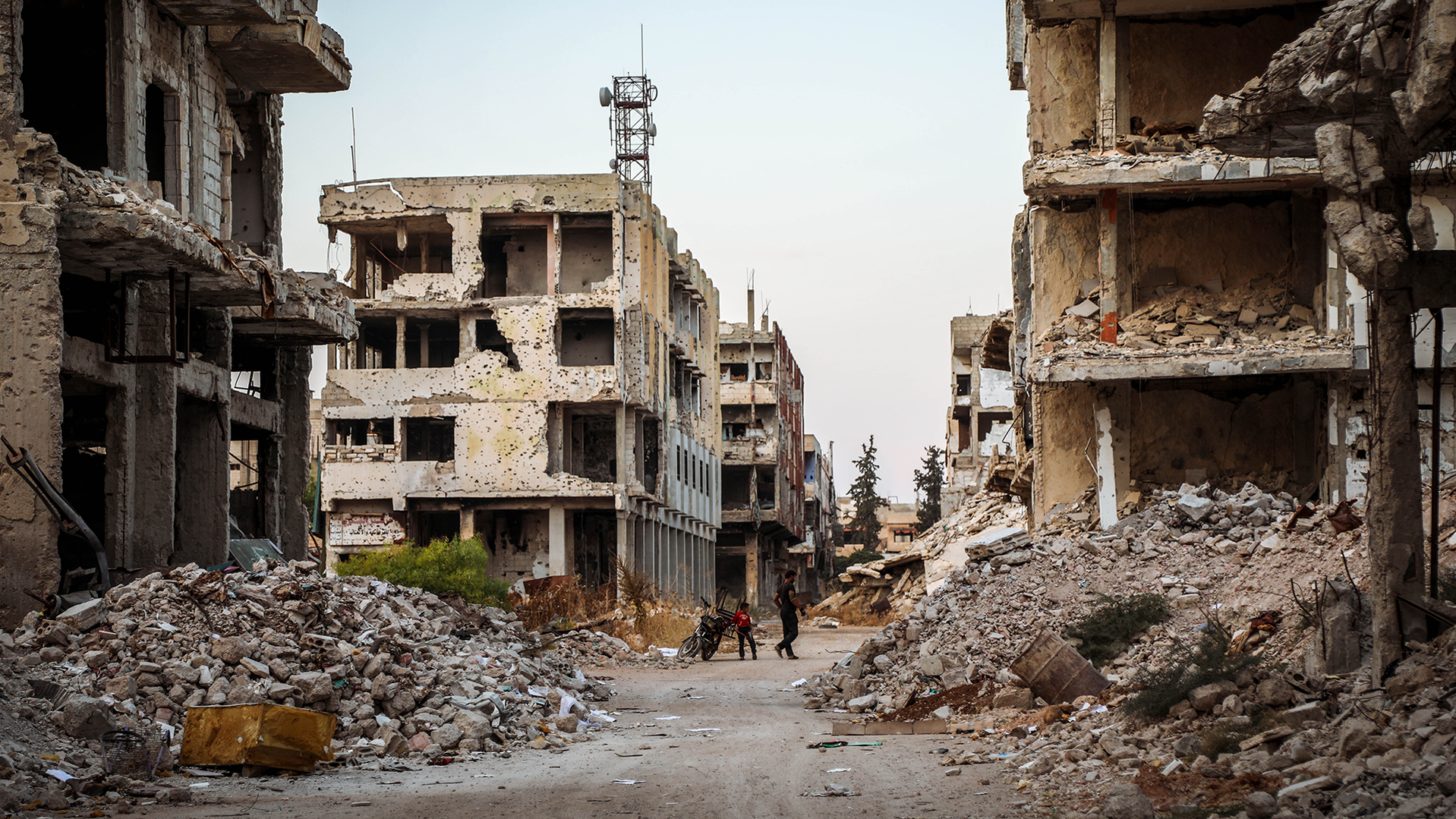
Through our catch-up education, children regain their self-confidence, stability and hope for the future
Photo: War Child
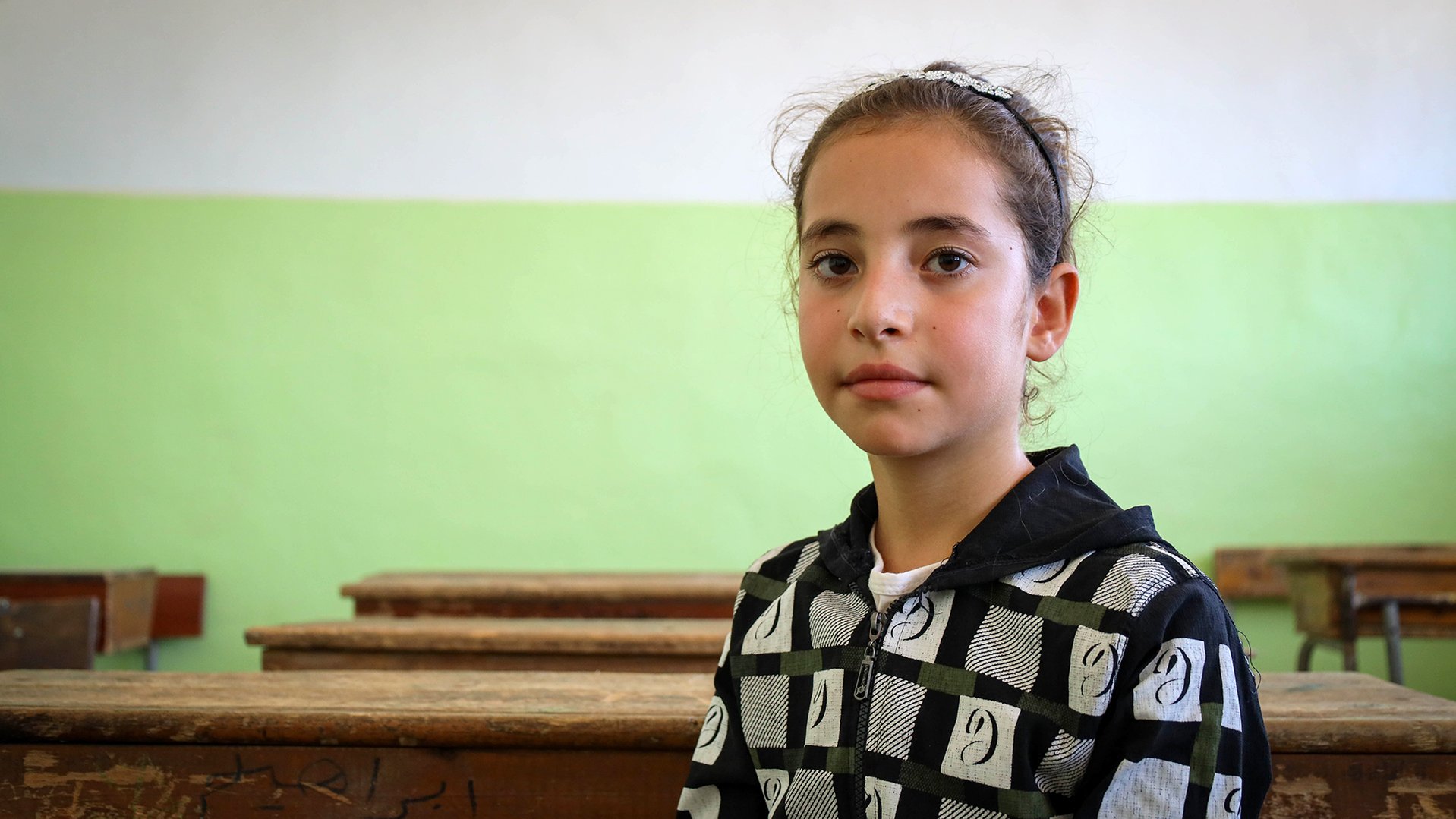
12-year-old Farah's home was destroyed in the earthquakes
Photo: War Child
Psychological toll
And besides the physical effects of the destruction, the psychological toll has been long-lasting. “Every day and night I am afraid the earthquakes will come back”, says Farah. “My fear of earthquakes is greater than my fear of war.”
After more than a decade of war, children are also experiencing a renewed sense of hopelessness about the future. “I couldn’t go to school for a long time”, adds Farah. “I hated that - I was afraid I’d never return.”
Expanding our response
War Child has been working through partners in Syria since 2012 due to the long-running conflict. This meant that our staff were immediately on-site to provide psychological first aid and assistance. Now, thanks to vital funding from an alliance of aid organisations in the Netherlands (Giro 555), we have been able to expand our response to address ongoing and emerging needs. Together with local partners, we have rapidly scaled up our psychosocial support, protection and educational activities to sustain hope and improve wellbeing among young people.
Since our last update, we have set up three new safe spaces where children like Farah can come together to learn and play free from fear. A total of 41 classrooms in four school buildings have been renovated where 1,080 children are participating in formal education programmes - with teaching materials provided by War Child. Some 900 children attended our catch-up lessons and a further 370 followed our Summer courses - ensuring they didn’t miss out on vital months of schooling.
BeThere, one of our evidence-based interventions, has also been rolled out to lower stress among parents and caregivers so that they can provide a supportive home environment.
Beyond our mandate, the funds we received allowed us to provide 54,772 bread parcels to 2,506 affected families. “Dignity kits” filled with hygiene and menstrual products, continue to be delivered to more than 4,000 women and girls on a regular basis.
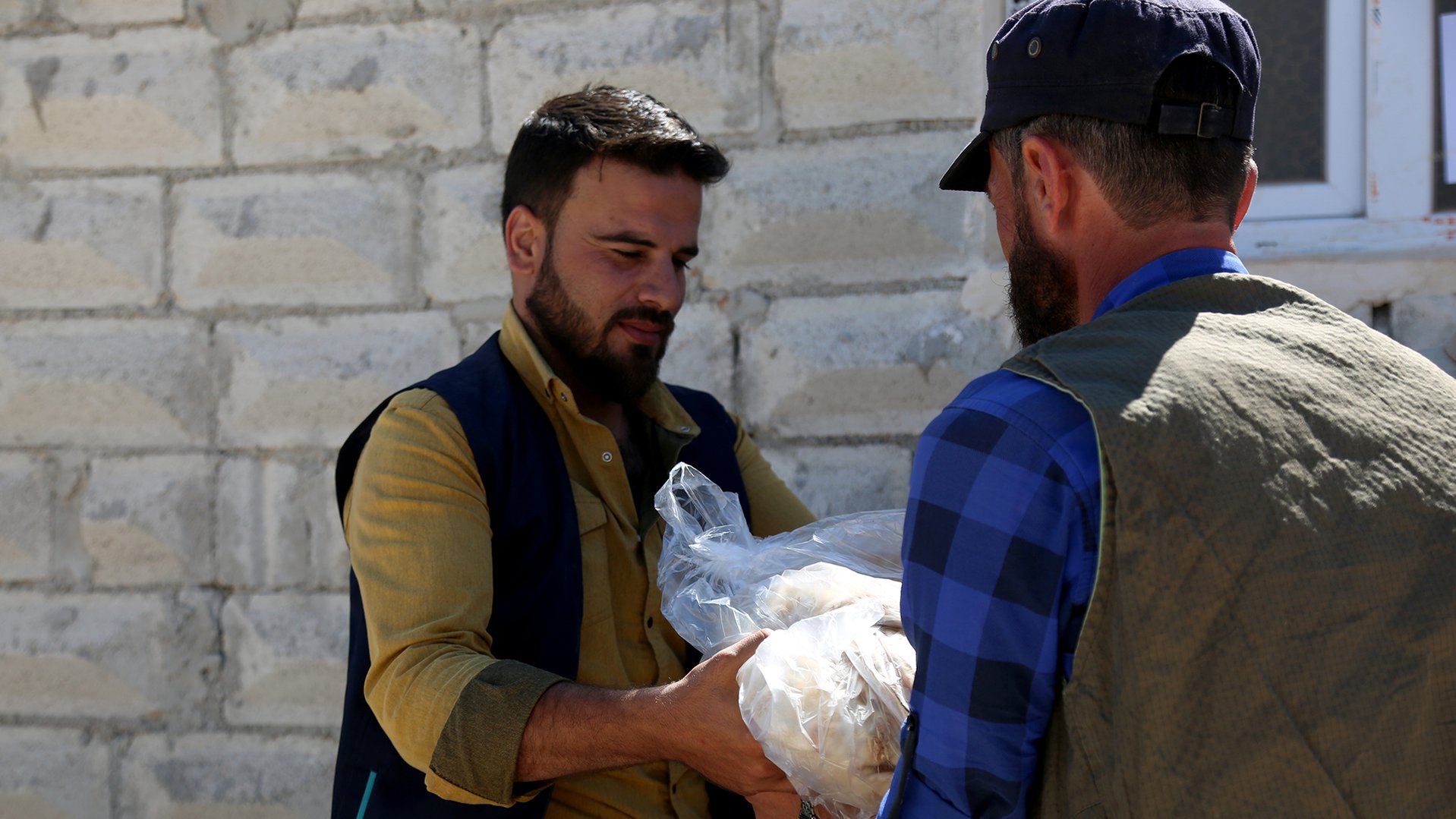
Six months after the earthquakes, 90 percent of northwest Syria is dependent on humanitarian aid
Photo: Mahmoud Sulaiman
Preventing the aftershocks
Psychosocial support remains a leading theme - to prevent the emotional aftershocks that are all-too common in the months; years after a traumatic event. In our safe spaces, Farah and others are receiving support to process their emotions and let go of tension in the body - through interventions like TeamUp. Over time, the play and movement-based sessions have had a build-up effect. “The sessions have helped me a lot”, says Farah. “It’s a lot of fun because we play and laugh and work together. Now, I don’t feel so stressed.”
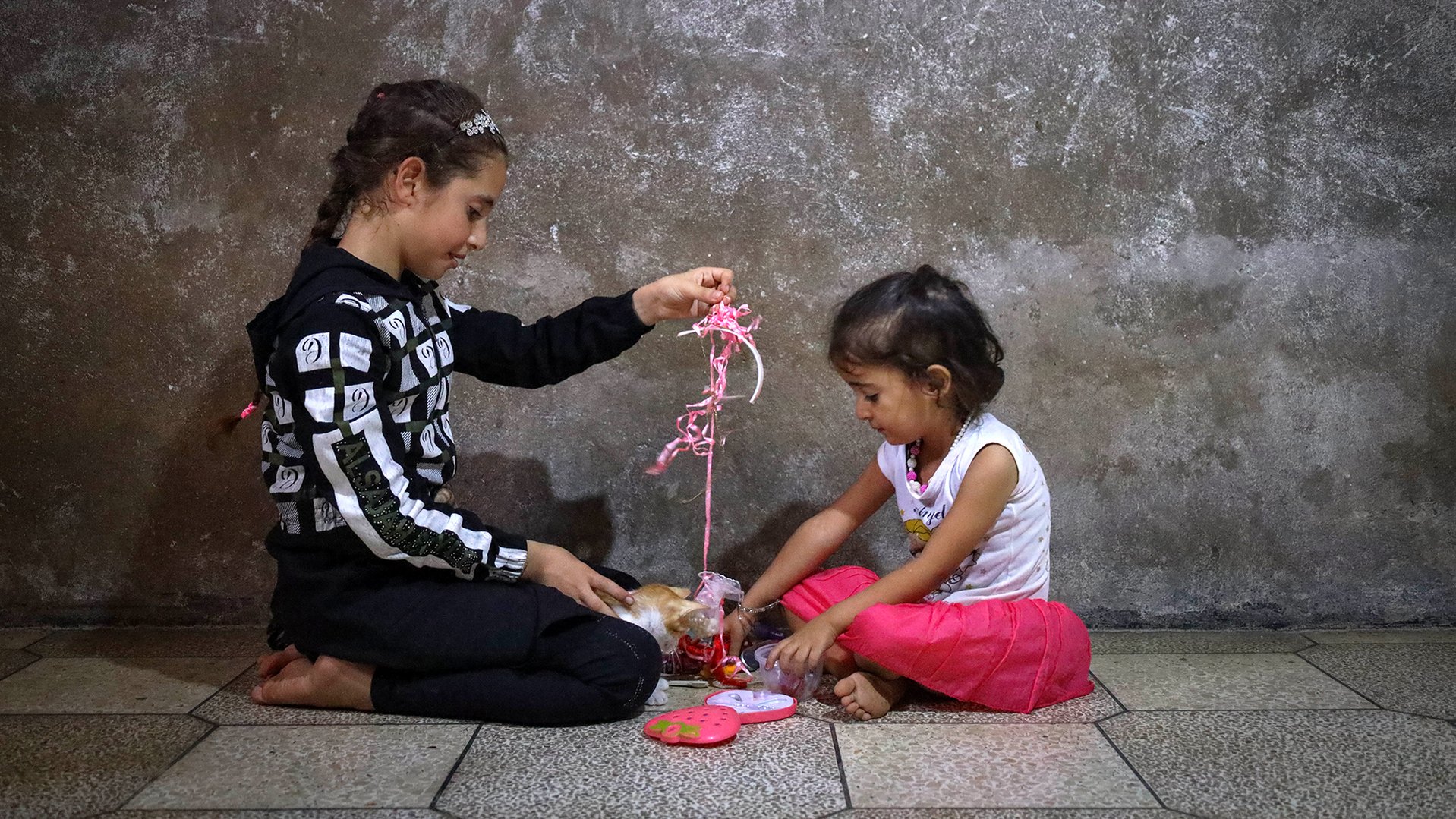
A moment of calm - Farah and her sister
Photo: War Child
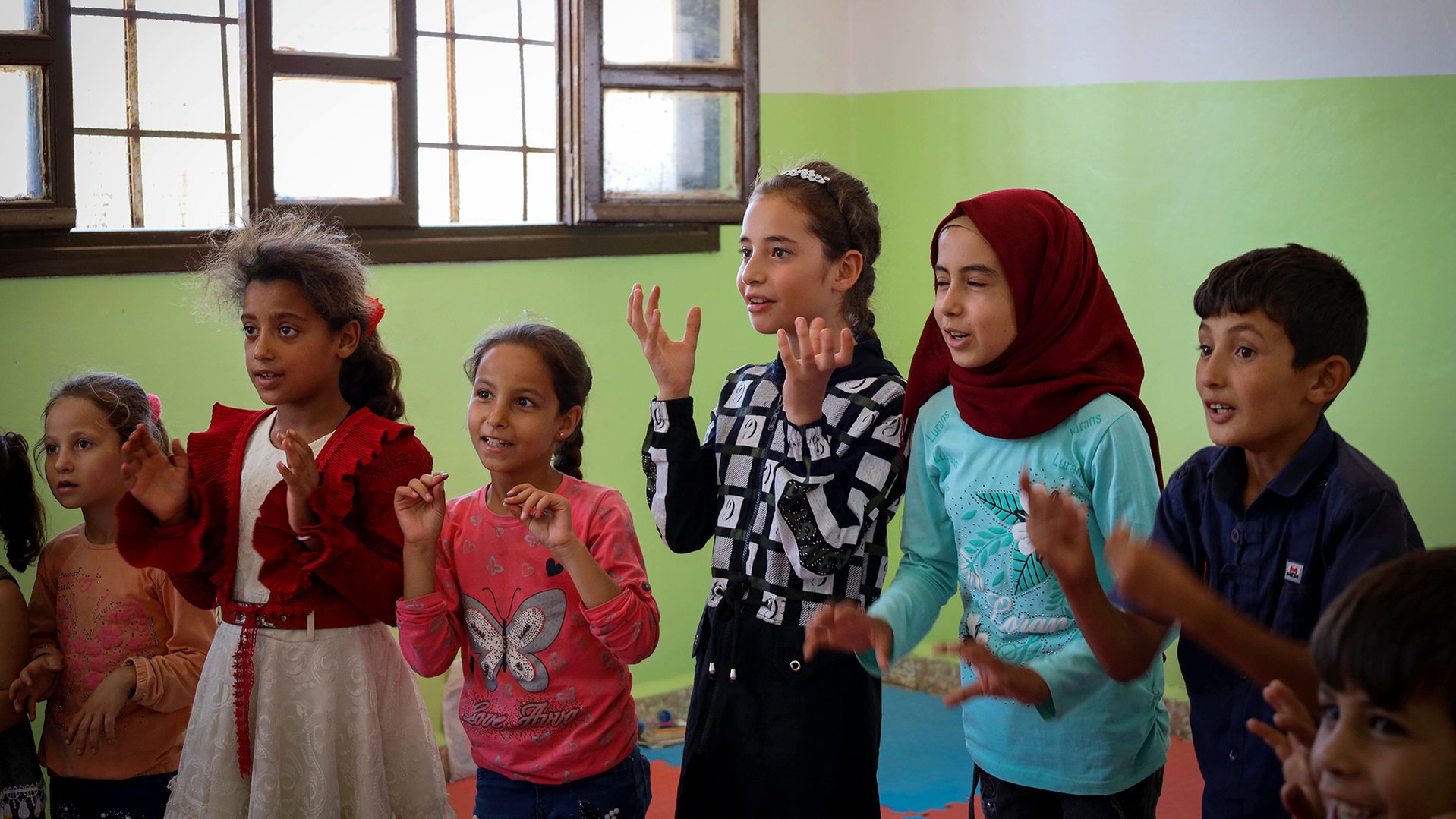
Through play and movement, Farah is slowly beginning to heal
Photo: War Child
